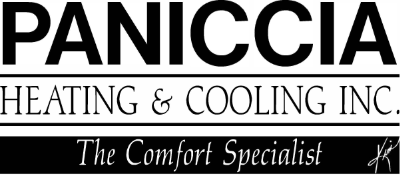
Major changes are coming for the heating and cooling industry! Cooling systems transitioning from R-410a to newer refrigerants like R-454B refrigerant and R-32 refrigerant will be implemented in 2025. These new coolants are engineered to be more beneficial to the environment and meet new regulations about global warming. But what does that mean for your current HVAC system and future services?
This shift will minimize the environmental footprint of our air conditioning systems. Beginning in 2025, new AC systems will employ new class of refrigerants that are more compatible with climate goals. If you're contemplating getting an AC replacement soon, this is the perfect time to learn more about how these updates can influence your home's comfort.
Why Is R-410a Refrigerant Being Phased Out by New Regulations?
For a long time, R-410a was the preferred refrigerant for residential air conditioners because of its efficiency. But analysis showed that R-410a still negatively impacts global warming. Because of this, the Environmental Protection Agency (EPA) implemented a plan back in 2021. The industry will steadily discontinue R-410a to introduce refrigerants that are better for the environment.
The HVAC industry has implemented shifts like this before. When the industry switched from using R-22 (commonly called Freon) to R-410a, property owners like you had to follow suit. And in the same way, this transition will influence how systems are constructed as well as the recommended procedures for HVAC maintenance. Both homeowners and HVAC technicians must plan for these new refrigerants if they wish to continue enjoying the most reliable, most cost-effective cooling possible.
Which New Refrigerant Is Replacing R-410a?
The new batch of refrigerants fall under the new "A2L" classification and include the newest R-454B refrigerant and R-32 refrigerant coolants. They're designed to provide the same efficient cooling while substantially decreasing their global warming potential (GWP) compared to R-410a.
R-454B refrigerant is believed to be especially effective due to its GWP being approximately 78% lower than R-410a. While R-454B refrigerant is actually more flammable than R-410a, updates to system manufacturing and maintenance practices will ensure servicing is just as safe to perform. Additionally, contemporary cooling systems using R-454B refrigerant are significantly more energy efficient, leading to big savings on energy bills over time, especially if you maintain your system with routine HVAC maintenance.
This switch isn't only about changing the refrigerant—it affects the whole HVAC system because the characteristics of R-454B refrigerant make it not suitable for use in older systems. Ultimately, every household and business using R-410a will have to upgrade to one of the new systems.
R-410a Replacement: What Should I Consider in Order to Make the Shift to New HVAC Refrigerants?
Changing to the new refrigerants won't be as straightforward as swapping out the new coolants with what's used in your current HVAC system. That's because the unique properties of R-454B refrigerant and R-32 refrigerant mean you can't use them in a system that uses R-410a. But rest assured—you can keep using your current R-410a system for now. Just remember that as time passes, the price of repairs and tune-ups will rise as R-410a becomes less available.
Planning ahead is the optimal way to stay on top of things. If your AC system is currently getting old, this is the ideal time to contemplate upgrading to a newer model that uses the new R-454B refrigerant. Plus, the HVAC specialists here at Paniccia Heating & Cooling can support you with upgrading with flexible options for HVAC replacement financing.
Which Refrigerant Is in My AC System?
Not sure which refrigerant your AC system employs? In general, you can easily learn this information by inspecting the label on your outdoor unit. This label indicates the type of refrigerant, the model number and many other specifications about your cooling system.
But if you are unable to decipher the label or can't find your user manual, don't worry! You can always call one of the expert technicians at Paniccia Heating & Cooling to assist you in figuring it out. Get all the details you need by reaching out at 219-872-2198.
